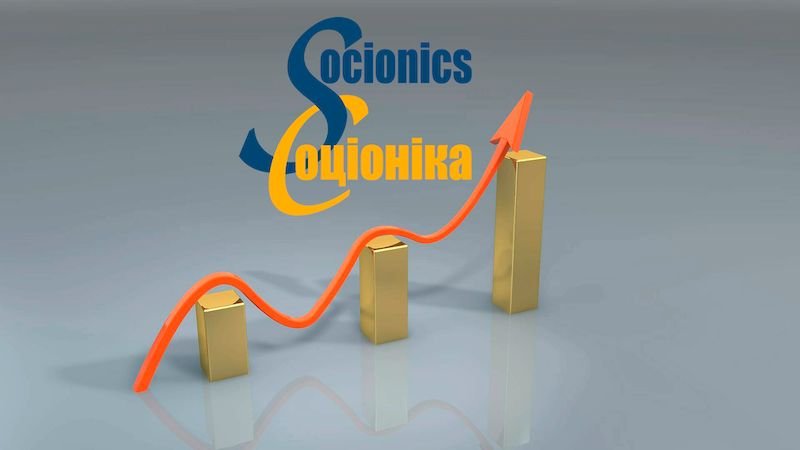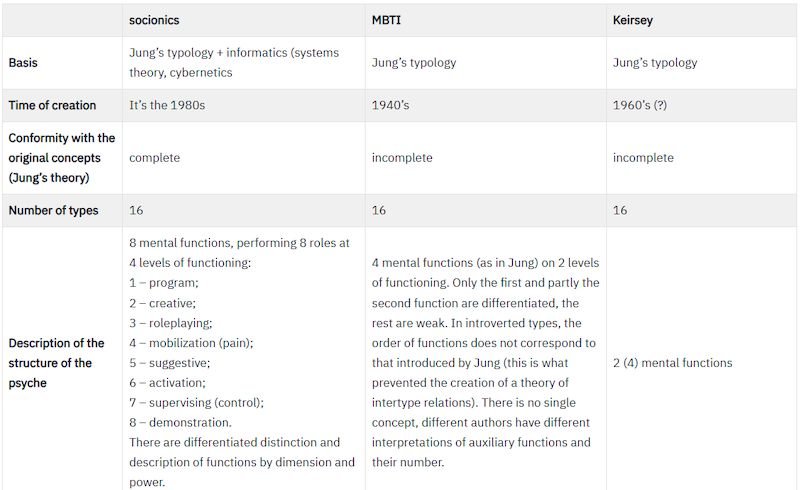In a discussion on Facebook, I was approached with questions about the development of socionics.
Konstantin: Alexander Valentinovich, allow me to ask a few questions about your comments, I hope that this is interesting to everyone. Do you think that reading the MIS journal(s) is a necessary condition for the development of those who are professionally involved in it, and that training from professionals is also necessary. 1) What else do you consider necessary? 2) What conditions do you consider sufficient for the development of socionics? 3) How do you imagine the development of the socionics program in society? What is the purpose of this program? 4) When will we be able to say that the socionics program has been implemented in a certain part of society, in the whole of society? 5) Will MIS publish journals on popular socionics, i.e. not for professionals, but for amateurs and those interested?
Konstantin, thank you for your interesting questions.
First, I will explain why professional journals should be read. They should be read regularly and participate in publications and discussions in order to maintain yourself at the proper level. If you do not do this, then your horizons begin to narrow, a person stops thinking – in some cases, begins to act according to an established pattern. And as a result – begins to lag behind colleagues in understanding some things. Sometimes this leads to the emergence of a specific psychological defense: "I have a special school, my own approach!.." This has been proven by 27 years of practice. Moreover, since the mid-80s, it has become customary for those who consider themselves socionics to regularly write articles and participate in seminars and conferences with reports. At first, these were collections of photocopies of works, starting with the works of Ausra Augustinavichiute. It was from here that the first scientific, officially registered, refereed journal "Socionics, Mentology and Psychology of Personality" was born, which is already 20 years old. Therefore, reading articles and publishing in such a magazine is not our whim, but an established natural condition for the development of a professional qualified socionic community. When a person writes an article, additional sections of the brain are activated, the level of awareness and understanding of any issue increases.
In addition, it is by publications and reports at International conferences that the qualification of a socionics specialist is assessed; the International Academic Council on Socionics awards qualification degrees of bachelor, master and doctor of socionics. Such a system has developed naturally and has proven its effectiveness. And those students who study with certified professionals receive the necessary amount of knowledge and skills.
However, there are many people who got acquainted with socionics on the Internet, having read books. Some are simply interested in it "for themselves and their friends". Others try to pass themselves off as specialists, believing that book or Internet knowledge is enough for them. And if for theoretical developments, when using the model apparatus of socionics, this is partly true, then when working with people, you cannot do without practice and an internship with a professional. Otherwise, a person, not working with "calibrated" types, begins to imagine that he knows everything himself. He "invents" for himself an "image" of a socionic type, its signs and properties, and begins his "practical activity". Some even perceive socionics so primitively that they do not even know or do not understand Model A, which is the basis of modern socionics. And they are not even embarrassed to talk about it on the principle of "we are simple people, we did not graduate from universities …, we do not understand your models and intellectualism, we do not know, and do not want to know!" Are these figures socionics? No, of course not – these are just impostors. Who, however, often find some audience of ordinary people who are completely uneducated in the field of socionics and try to make money on it. Sometimes, after the activities of such “specialists” (among whom there are even psychologists who imagined themselves to be specialists in socionics (!)) in some firm or company, they invite us, specialists of the International Institute of Socionics, so that we can correct the consequences of ignorant recommendations.
There are, of course, reverse examples: for example, a doctor of sociological sciences underwent special training and received a bachelor's degree in socionics for his practical work. This is an example of responsibility and scrupulousness! The person understood that a doctorate in a related science does not replace specific knowledge.
Finally, there is an empirically derived gradation of competence and level of understanding of socionics:http://socionic.info/pdf/as-ol-502.pdf: Therefore, my colleagues and I consider the following to be the most important conditions for the development of socionics:
- Formation of a cohesive professional community of socionics with clear criteria of competence, depending on the qualification level. This work is partly being done, we already have more than 150 certified doctors, masters and bachelors of socionics in different countries, but the community itself is not yet legally and organizationally formalized – it has not yet fully recognized itself as such.
- Educational and explanatory work of the entire community among non-specialists and the population on the issues of: what is socionics, what is it intended for. It is necessary to separate socionics as a science and technology and its specialists from the Internet garbage created by pseudo-socionicists.
Socionics differs from almost all humanities in that, in addition to describing socionic types, their relationships and the socion as a whole, it has a well-developed theoretical apparatus for modeling information processes. This is primarily due to the Kyiv School of Socionics. And thanks to this, socionics has two "wings": this is socionics itself, types of information metabolism, with its practical applications, etc., and theoretical, model socionics, which allows describing a wide range of issues, since Information Aspects are present in all spheres of human activity. Therefore, socionic methods are already used in almost all humanities and even some technical sciences:http://socionic.info/pdf/soc-academ.pdf, as I had assumed earlierhttp://socionic.info/t/vved-buk.html#top,http://socionic.info/t/as-302.html#top. By the way, I will note that the specialists who apply these methods in their field do not undertake to test living people and give them recommendations. They understand their responsibility and the limits of their competence.
Socionics is, of course, interesting to many people, because it gives them new knowledge about themselves and others. And, of course, many people like this game of defining a type. And there is nothing wrong with that, if peoplewill know and understand, that a game is a game, including on the Internet, but serious questions and the correctness of determining your type, if this is significant, must be resolved with a certified professional who has deep knowledge, and the probability of error is significantly lower than that of an amateur. I will add that with the simultaneous participation of 2-3 experts in the procedure for determining the socionic type, the probability of error is reduced to almost zero. Therefore, in the practice of the International Institute of Socionics (MIS) since 1991, individual testing has not been allowed. Unfortunately, some socionics neglect this, working alone and thereby violating the laws of socionics itself.
At the same time, when working with a team of some company, simple socionics of personality is no longer enough. Here, technologies and methods of theoretical and Integral socionics are needed.
The purpose of disseminating socionic knowledge is twofold:
- to give the maximum number of people knowledge about themselves, their loved ones, those around them, their relationships,
- and give each person the opportunity to take a new look at life, their work and the world as a whole, at the cultural, informational, social, political, historical and other processes in which they are and participate.
A person familiar with socionics can look at what is happening around them in a completely different way. They become more efficient, more conscious, make fewer mistakes, both in their personal lives and at work. Some people who have mastered socionics compare it to putting on glasses with the "night vision" function at night – they see what others do not notice. From a more general point of view, the spread of socionics is a natural process associated with the development of the information society. In the field of humanities and applied sciences, socionics and its theoretical apparatus are used more and more:https://socionic.info/pdf/soc-academ.pdfFor example, in 2012, the library of scientific publications e-library in various academic journals had 230 publications related to socionics, and in 2014 – already about 500. And about 900 dissertations in all humanities and some technical sciences, using the methods and concepts of socionics. For these sciences, socionics provides a new powerful method of analysis, and has been used for a long time even in manned spaceflight, aviation, management, sports, etc.
The basics of socionics are already taught in most universities, but our experience shows that even high school students are quite capable of learning the basics of socionics and applying some of the socionic knowledge and concepts in life. That is, this is a question of social, public demand, but again, if everyone understands the difference between an amateur and a professional approach.
The question of the accuracy of type definition is often raised. But the question of the purpose of this definition is more important. For a professional, defining a socionic type is only the beginning of working with a person. Therefore, if in the process of further work he notices a discrepancy, he will clarify and adjust his understanding. This applies to everyone who seriously and professionally works with people – from teachers to managers, practical psychologists and consultants. It is clear that with an amateur, game approach, the accuracy of the definition practically does not matter, since psychologically a person does not take this seriously, as with any test to determine some character traits, of which there are dozens, if not hundreds: played and forgot.
About popular magazines. Back in 1994, they tried to persuade us to make a popular, rather than a scientific, magazine, but we have scientific priorities. Apart from MIS, there is no one to publish scientific magazines – this requires the appropriate scientific potential, knowledge, skills, and desire. But no one prevents anyone from publishing popular science publications. Some people tried. As a result, after publishing 2-3 issues, 3 or 4 projects have already failed, and MIS scientific and applied magazines are still being published. The thing is that socionics is too serious knowledge, and when they try to popularize it, it often turns out vulgar or primitive. It will do for one or two times, you can publish a book, but regularly – it turns out to be nonsense, because any knowledge and self-knowledge requires development and deepening, and this is no longer popular, but normal serious socionics. And in the era of the Internet with hundreds of quasi-popular stories about socionics, publishing a popular magazine looks even more problematic. The idea of voluntary certification of socionics sites has already been put forward, in order to separate the normal ones from all the garbage and nonsense. But, of course, this makes sense within the socionics community, separating itself from the "wild", unqualified "socionists".



